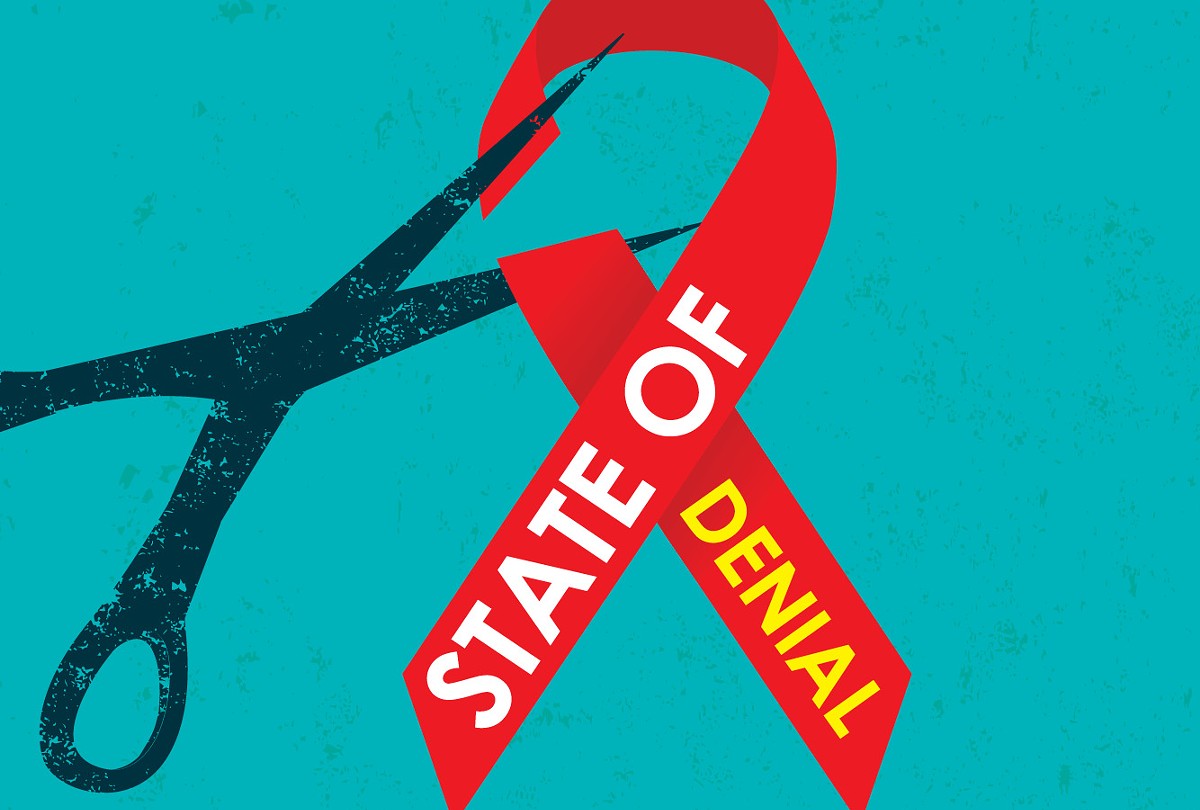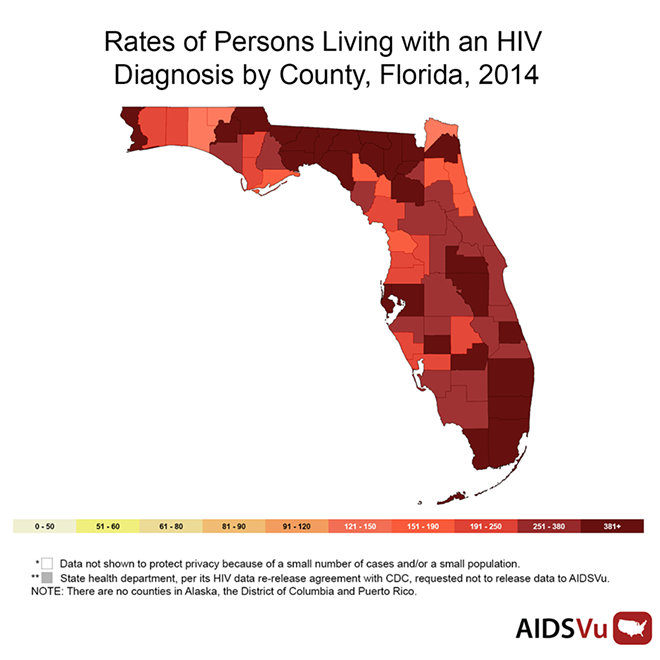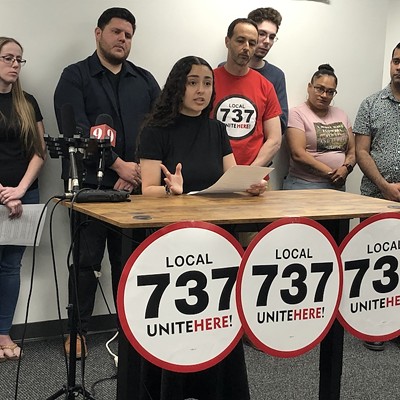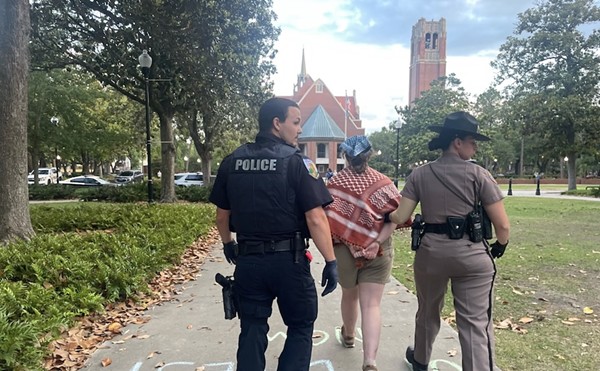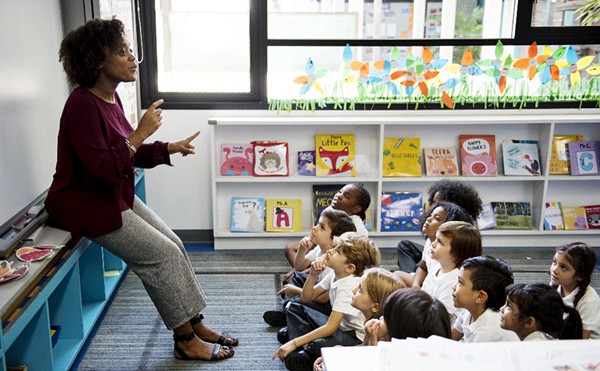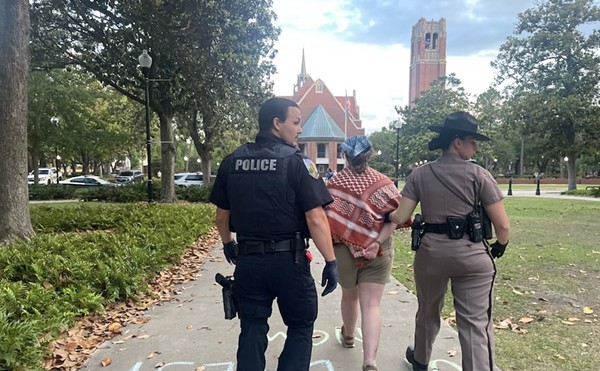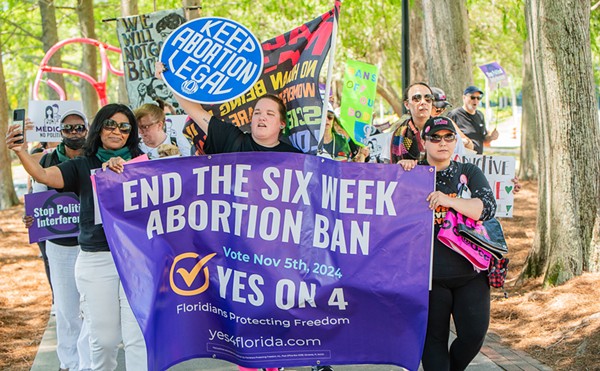"Many local regions, including East Central Florida, have had to reduce funding for services from eligibility determination to medical case management to ambulatory care," says the report from Orlando providers. "These reductions have translated to a shrinking healthcare workforce, and in some areas, wait lists for newly HIV-diagnosed and identified individuals to enter care. ... The simple math of an ever-increasing HIV-positive population trying to be served in a healthcare system whose funding cannot keep pace with the need and with rising costs yields an unfortunate product: shortfalls in care to a critically fragile community."
Last year, when Gov. Rick Scott was asked about the state Health Department removing more than 1,500 HIV diagnosis cases from state rolls in 2014 because they were duplicates, a spokesperson for Scott touted that Florida had invested $34 million in AIDS/HIV prevention in 2016. But as PolitiFact reports, that money was actually from the CDC, not from state coffers – that same year, Florida actually invested an additional $1.65 million out of its $82 billion budget.
Lauren Schenone, spokeswoman for the governor’s office, says Scott recognizes the importance of providing a robust response to combat HIV.
"We are proud that over $290 million dollars of federal and state funds will be allocated in Florida this year to combat and treat HIV/AIDS," Schenone says in a statement.
David Poole, director of legislative affairs at the AIDS Healthcare Foundation, says the decades he's worked to help people with HIV have been gratifying and heartbreaking. He watched many of his friends die in the early '90s – now, people are still dying, though much more quietly and with less visibility because of the stigma still surrounding the virus. Poole says 30 to 40 percent of the population in Florida living with HIV is not on sustained medical treatment.
"That sense of urgency is gone in the Florida Legislature because there's other priorities," Poole says. "Our greatest source of funding for care is still the Ryan White safety net program. It's tough because we talk to bipartisan leaders, we get a lot of positive nods and we're not able to rally the troops. I've been doing this for 25 of the 36 years of the epidemic, and it's frustrating to have so many good tools at our fingertips to prevent the disease and not be able to use them."
After years of struggling to get a bill passed through the legislature, Dr. Hansel Tookes finally opened the first needle exchange program in the state last December in Miami, decades after many states opened their needle exchange programs in the '90s. IDEA Exchange, which hopes to curb HIV infections in drug users who share and reuse needles, is still prohibited from obtaining federal, state and municipal funds, and runs solely on donations. Tookes says he regrets that the pilot program was limited to Miami, because places like Orange County need the program to combat the heroin and HIV epidemics.
"One of the really sad things about what we see in South Florida is there's a disproportionate affect on the poor community," he says. "People from already disadvantaged backgrounds don't have access to care. South Beach has the highest rate of new infections – more than sub-Saharan Africa."
Arianna Lint, founder of Arianna's Center in Fort Lauderdale, says the state and other nonprofits could do more to reach out to transgender women who are HIV-positive, like herself. After immigrating to Florida from Peru, she says she was diagnosed with HIV at the Orlando health department in 2006.
"I thought it was a punishment for who I was," she says in Spanish. "I didn't know anything, and other girls like me didn't talk about it because the stigma was so bad. Thank God in 2008 I went to a national HIV conference in Orlando and met other transgender activists who understood the same struggles."
Working at various organizations and now at her center, Lint says she caters specifically to the trans community living with HIV. Like Davis, Lint's work sometimes involves going to pick up medications for people at the pharmacy because they don't want to be misgendered, helping people get hormone treatments along with their HIV medicines or even helping organize their pill box with the new medicines.
"It's very difficult to get transgender girls to stay in care because of the discrimination they face at agencies or just bad treatment at the clinic," Lint says. "Discrimination comes from partners who divulge HIV status or are criminalized by the state for having HIV, even if they're undetectable. It's devastating for me to test women negative one year and then positive the next. I try to give them strength and be a healthy example."
If Florida doesn't step up now, it's not clear yet how funding for HIV/AIDS will be handled at the national level. Last month, six people resigned from President Donald Trump's advisory council on HIV/AIDS for various reasons, including that the administration has "no strategy" to address the epidemic and Trump's efforts to repeal the Affordable Care Act, which advocates say has strongly benefited HIV-positive people and helped fight the epidemic.
Dr. Patrick Sullivan, lead research for the AIDSVu project, says he decided to remain on Trump's advisory council because he felt he could make more of an impact that way, though he doesn't blame those who left. The rate of new HIV diagnoses has decreased by 18 percent in the nation in the past seven years because of investments in testing, care and health measures like Obamacare, Sullivan says, but that could be easily reversed with the wrong policies.
"If we don't take prevention steps, this virus will re-emerge and reassert itself," he says. "Stigma actually threatens the gains we've made in HIV prevention – I'm talking about stigma against people with HIV, anti-gay stigma, homophobia, racism and other types of marginalization. That's at odds with the goals of public health."

